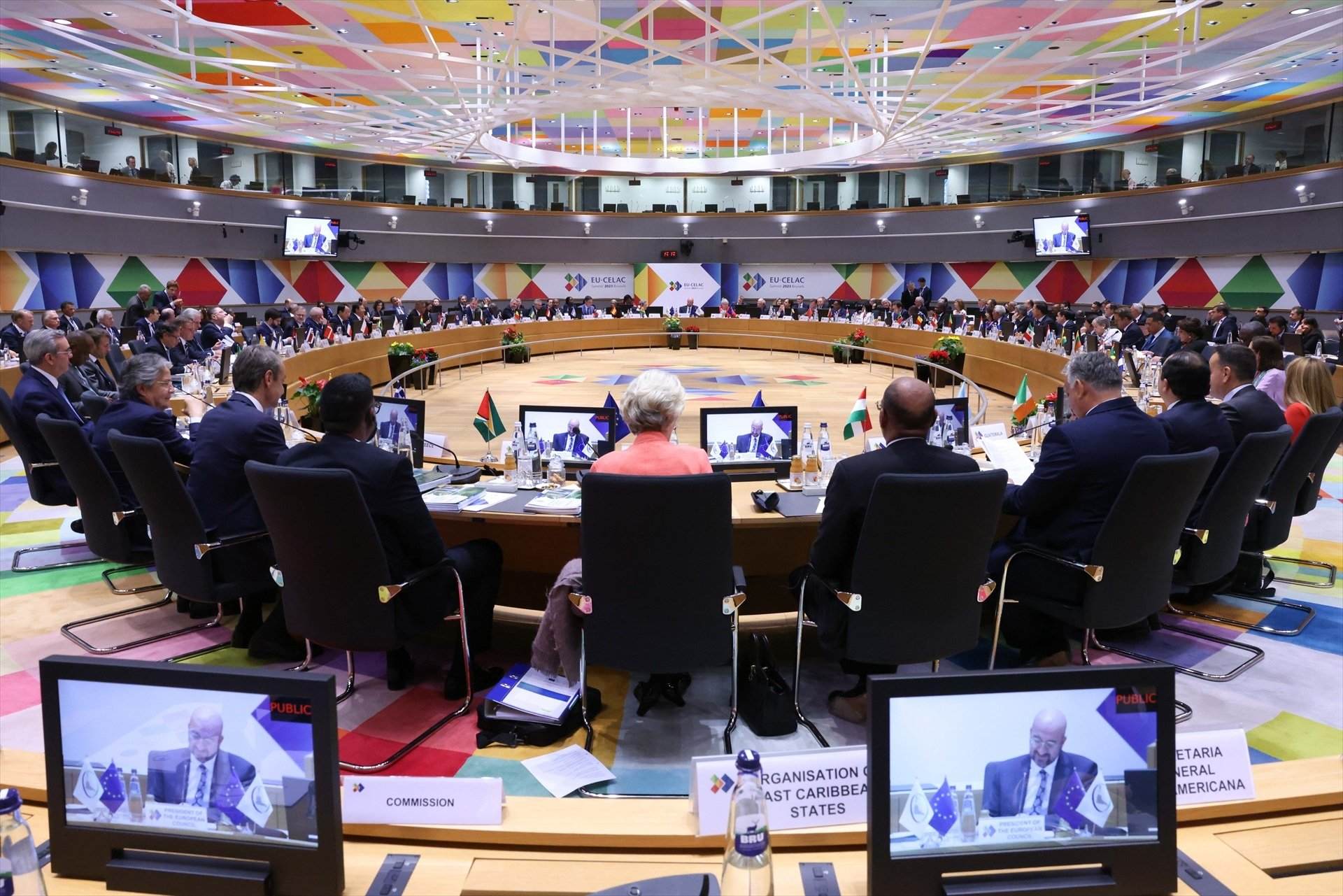The Council of the European Union plans to discuss the official status of Catalan again at the meeting it is to hold on October 24th in Luxembourg. This is reflected in the provisional agenda for the meeting, which, although it does not make a direct mention of the inclusion of Catalan, Basque and Galician, includes in the fourth point of the agenda "Regulation amending regulation No 1 determining the languages to be used in the European Economic Community". Below this are the words "Progress report", suggesting that the meeting will hear of new developments in the issue since the previous discussion on September 19th, but not that a final decision is necessarily likely. The presence of the issue in the provisional document confirms the information stated two weeks ago by the Spanish foreign minister, José Manuel Albares, who assured that the proposal to make these three languages official would occupy "a specific point" on the agenda.
Albares, optimistic about achieving official status for Catalan
After the debate was postponed due to a lack of agreement on September 19th, the issue will be addressed again at the next meeting of the General Affairs Council. Albares recently affirmed that the September meeting was "a shot on goal", rejecting the idea that the postponement of the meeting was a tactic to delay the decision and avoid making it a reality.
In this regard, he affirmed that the Spanish executive is "committed" to moving forward to comply with this proposal, although he recalled that it requires the unanimous vote of all member states. The minister pointed out that in the first meeting no member state had opposed it outright, but rather they simply asked for more time to reflect on it. "No member state took the floor to point out any aspect that concerns or worries them (about the Spanish proposal) or to obstruct it," he asserted.
The minister also insisted on "the will of all the countries of the European Union to work with Spain on this path". "We continue to move forward as Spanish government committed to do, and we will continue to work to be able to accommodate any comments that any member state may have prior to October 24th and continue to move forward," he said. Finally, he emphasized that Spain's co-official languages are now used in both the Spanish Congress and the Senate and that their use has enjoyed "administrative agreements" in the European framework for almost two decades - so that "the will to work in this field is full".

